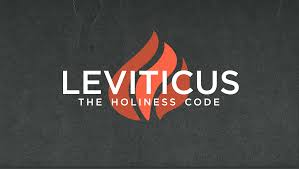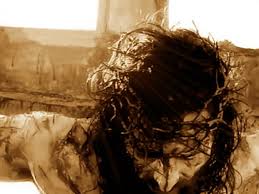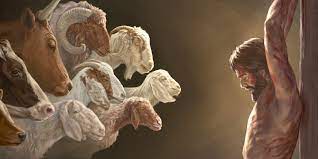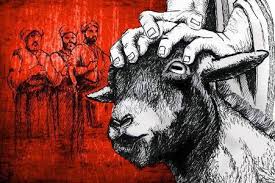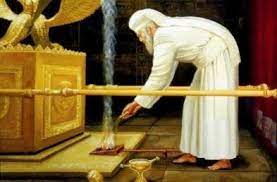Dk – Capital Punishment and Other Grave Crimes 20: 1-27
Capital Punishment and Other Grave Crimes
20: 1-27
Chapter 20 supplements and reinforces Chapter 18, emphasizing the punishments for various offenses. Whereas the commandments in Chapters 18 and 19 are addressed to would-be offenders and prohibit specific actions. Those in Chapter 20 are addressed to the covenant community and explain the punishments for specific crimes. Except for verses 19-21, the crimes identified in this chapter receive the death penalty (see the commentary on Exodus, to see link click Ea – A Life for a Life, an Eye for an Eye). Though seemingly harsh, this was essential to prevent sin from infecting the community life of God’s people.

The gravest public sins against life, religion, and the family were those which carried the maximum penalty of death, such a premeditated murder (Exodus 21:12; Numbers 35 and Deuteronomy 19), kidnapping (Exodus 21:16 and Deuteronomy 24:7), adultery (Leviticus 20:10 and Deuteronomy 22:22), homosexuality (Leviticus 20:13), blasphemy (Leviticus 24:13-16 and 23), idolatry (Deuteronomy 13:6-10) and persistent disobedience against authority (Deuteronomy 17:12 and 21:18-21). The method of inflicting capital punishment is given twice as stoning (Leviticus 20:2 and 27), and once as burning (Leviticus 20:14), understood by Jewish tradition as hot lead being poured down the throat! The most severe expression of the death penalty, however, is found in verses 3, 5-6, and 17-18, the guilty person would be cut off from the covenant community.344
The basic principles of the Ten Commandments (see the commentary on the Deuteronomy Bk – The Ten Words) are incorporated into Chapters 18 through 20, though not in the same order and not always with the same emphasis.
The Ten Commandments Leviticus
1-2 No other gods 18:2 and 19:4
3 Misuse the Name 19:12
4 Observe Shabbat 19:3b
5 Honor father/mother 19:3a
6 Do not murder 19:16b
7 No adultery 18:20 and 20:20
8 Do not steal 19:11a
9 No false witness 19:16a
10 Do not covet 19:18






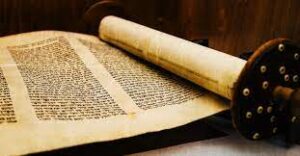
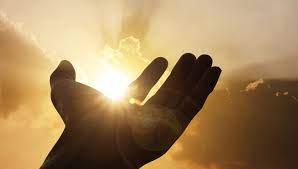


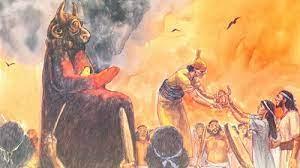
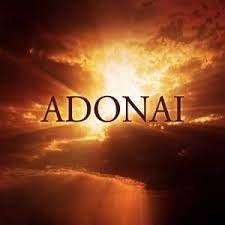


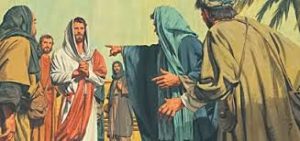 சன்ஹெட்ரின் உறுப்பினர்கள், இயேசு வாக்களிக்கப்பட்ட மேசியா என்பதை தீர்மானிக்க அவரிடம் கேள்விகளைக் கேட்க சுதந்திரமாக இருந்தனர். இப்போது யோவானின் சீடர்களும் பரிசேயர்களும் உபவாசம் இருந்தார்கள். சில பரிசேயர்கள் வந்து இயேசுவிடம், “யோவானின் சீஷர்களும் பரிசேயர்களின் சீஷர்களும் அடிக்கடி உபவாசிக்கிறார்கள், ஆனால் உங்களுடையவர்கள் உண்பதும் குடிப்பதும் எப்படி” என்று கேட்டார்கள் (மத்தேயு 9:14; மாற்கு 2:18; லூக்கா 5:33)? துரதிர்ஷ்டவசமாக, உண்ணாவிரதம் உண்மையான அவமானத்தின் வெளிப்பாடாக இருக்காமல் வெறும் சம்பிரதாயமாக மாறிவிட்டது (லூக்கா 18:13); மற்றும் பொது இடத்தில், கழுவப்படாமல், தலையில் சாம்பலைப் போட்டுக் கொண்டு பிரார்த்தனை செய்யும் நபரின் தோற்றம் பெருமை மற்றும் மத நிகழ்ச்சியாக மாறியது (மத்தேயு 6:16).435 மேசியா வரும்போது அவர் வாய்வழிச் சட்டத்தைப் பின்பற்றுவார் என்று அந்த நேரத்தில் பரிசேய யூத மதம் நம்பியது. உண்ணாவிரதம் வாய்மொழி சட்டத்தின் ஒரு பகுதியாக இருந்தது! எனவே அவர்களின் எண்ணம் இதுதான், “நீங்கள் உண்மையிலேயே மேசியாவாக இருந்தால், நீங்களும் உங்கள் டால்மிடிம்களும் ஏன் பெரியவர்களின் மரபுகளைப் பின்பற்றக்கூடாது (மாற்கு 7:3)?
சன்ஹெட்ரின் உறுப்பினர்கள், இயேசு வாக்களிக்கப்பட்ட மேசியா என்பதை தீர்மானிக்க அவரிடம் கேள்விகளைக் கேட்க சுதந்திரமாக இருந்தனர். இப்போது யோவானின் சீடர்களும் பரிசேயர்களும் உபவாசம் இருந்தார்கள். சில பரிசேயர்கள் வந்து இயேசுவிடம், “யோவானின் சீஷர்களும் பரிசேயர்களின் சீஷர்களும் அடிக்கடி உபவாசிக்கிறார்கள், ஆனால் உங்களுடையவர்கள் உண்பதும் குடிப்பதும் எப்படி” என்று கேட்டார்கள் (மத்தேயு 9:14; மாற்கு 2:18; லூக்கா 5:33)? துரதிர்ஷ்டவசமாக, உண்ணாவிரதம் உண்மையான அவமானத்தின் வெளிப்பாடாக இருக்காமல் வெறும் சம்பிரதாயமாக மாறிவிட்டது (லூக்கா 18:13); மற்றும் பொது இடத்தில், கழுவப்படாமல், தலையில் சாம்பலைப் போட்டுக் கொண்டு பிரார்த்தனை செய்யும் நபரின் தோற்றம் பெருமை மற்றும் மத நிகழ்ச்சியாக மாறியது (மத்தேயு 6:16).435 மேசியா வரும்போது அவர் வாய்வழிச் சட்டத்தைப் பின்பற்றுவார் என்று அந்த நேரத்தில் பரிசேய யூத மதம் நம்பியது. உண்ணாவிரதம் வாய்மொழி சட்டத்தின் ஒரு பகுதியாக இருந்தது! எனவே அவர்களின் எண்ணம் இதுதான், “நீங்கள் உண்மையிலேயே மேசியாவாக இருந்தால், நீங்களும் உங்கள் டால்மிடிம்களும் ஏன் பெரியவர்களின் மரபுகளைப் பின்பற்றக்கூடாது (மாற்கு 7:3)? Pablo se distinguió de Pedro, contrastando lo que él hizo con la ley (Torá), con lo que hizo Pedro con la ley (Torá). Porque yo, por medio de la ley, a la ley he muerto, a fin de vivir para Dios. Con el Mesías he sido juntamente crucificado (2:19). La obediencia a los 613 mandamientos de Moisés no es nuestro amo; ADONAI si lo es. No es nuestra relación con la ley (Torá) lo que nos salva, es nuestra relación con ADONAI (Romanos 7:1-2 y 4). El intento de Pablo de cumplir perfectamente los 613 mandamientos de Moisés para la salvación, reveló su propia incapacidad para cumplir con estas demandas y su incapacidad para hacerlo justo. Como resultado, él la abandonó como medio de justificación y aceptó la salvación por gracia en Jesús el Mesías. Él encontró que, si bien los 613 mandamientos de Moisés revelaron el pecado, no proporcionaron remedio para el pecado, sino que lo condenaba irremediablemente, porque nadie podía cumplir con sus requisitos. La obediencia al legalismo para la salvación ejerció un doble poder sobre él, ¡pues lo convirtió en pecador y luego lo castigó a él por serlo! 63
Pablo se distinguió de Pedro, contrastando lo que él hizo con la ley (Torá), con lo que hizo Pedro con la ley (Torá). Porque yo, por medio de la ley, a la ley he muerto, a fin de vivir para Dios. Con el Mesías he sido juntamente crucificado (2:19). La obediencia a los 613 mandamientos de Moisés no es nuestro amo; ADONAI si lo es. No es nuestra relación con la ley (Torá) lo que nos salva, es nuestra relación con ADONAI (Romanos 7:1-2 y 4). El intento de Pablo de cumplir perfectamente los 613 mandamientos de Moisés para la salvación, reveló su propia incapacidad para cumplir con estas demandas y su incapacidad para hacerlo justo. Como resultado, él la abandonó como medio de justificación y aceptó la salvación por gracia en Jesús el Mesías. Él encontró que, si bien los 613 mandamientos de Moisés revelaron el pecado, no proporcionaron remedio para el pecado, sino que lo condenaba irremediablemente, porque nadie podía cumplir con sus requisitos. La obediencia al legalismo para la salvación ejerció un doble poder sobre él, ¡pues lo convirtió en pecador y luego lo castigó a él por serlo! 63
